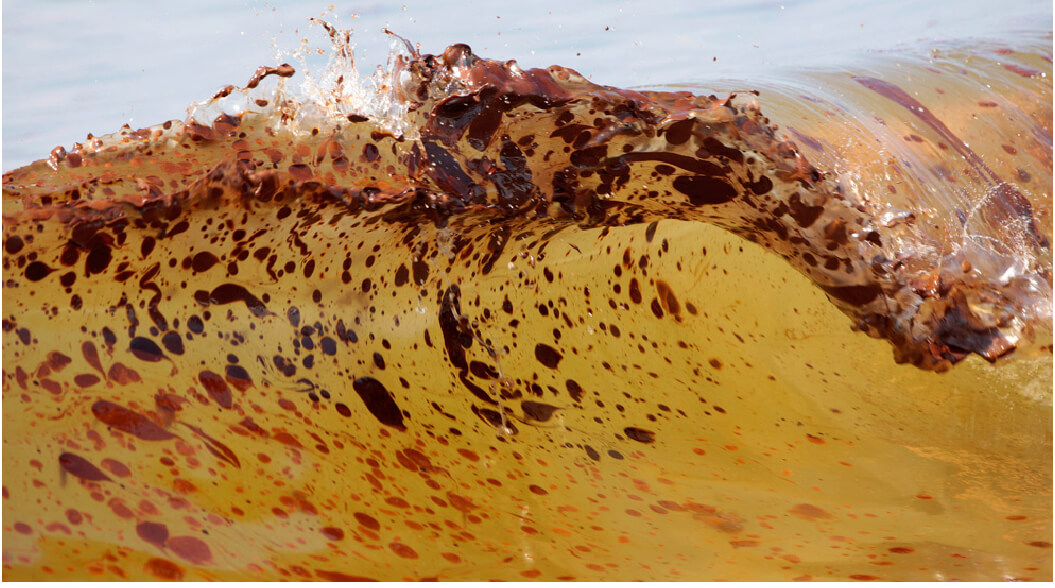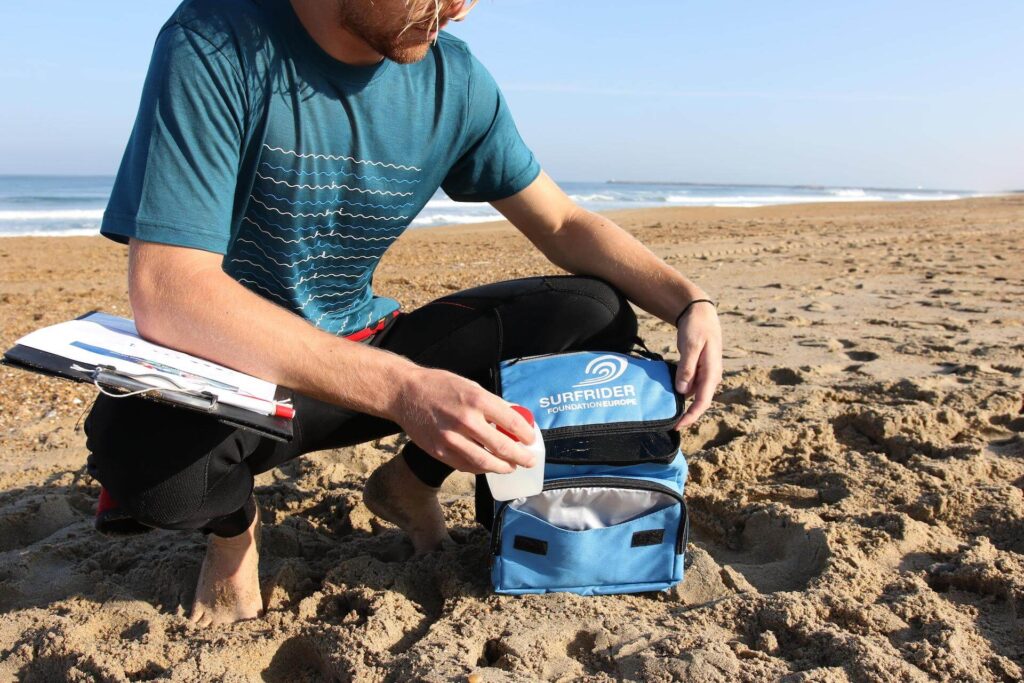Chemical pollution
Chemical pollution is generated by the release of chemical products from both industrial and domestic sources and can result from the use of pesticides, detergents or heavy metals. Currently, chemical pollution is still not taken into account in bathing water quality control,yet it poses a major risk to both human and marine life.
Domestic pollution
Micropolluants: what are they?
Micropollutants are predominantly synthetic, produced by petrochemicals; they can be found in cleaning products, cosmetics, drugs and pesticides. One of their main features is that they are persistent – which means they break down really slowly or not at all in the environment. Because of this, a lot of organisms end up ingesting them. Moreover, micropollutants create an endless list of health hazards: irritation, corrosion, allergies, endocrine disruptions, cancers, etc.
They also affect the ecosystems into which they are released; for example, they can disrupt fish reproduction.
How to fight back?
There are cleaner, more sustainable alternatives to micropollutants, such as adapting consumption habits or being mindful when picking the products we use. Ocean Campus is an educational platform provided by Surfrider, where you can find tutorials on how to make your own cleaning products, toothpastes, solid shampoos, scrub bars, lip balms or even detergent, dishwasher or toilet tablets. On top of being eco-friendly, making your own cleaning and hygiene products can be an opportunity to spend quality time with your family, all while working towards the well-being of all!
Antimicrobial resistance
The origin of the problem
The intensive, sometimes excessive, use of antibiotics in medicine and livestock farming is the root of the problem. In these medicalised environments, bacteria develop a resistance; they are then released by the organisms into wastewater, before going through water treatment systems. Most of these micropollutants end up in nature, through waterways or directly into the sea. At the moment, few water treatment systems deal with pharmaceutical waste.
Health risks
Antimicrobial resistance is a major public health issue. In 2014, it was estimated that antimicrobial resistance was the cause of 50,000 deaths in Europe and 700,000 deaths worldwide each year. The main issue with antimicrobial resistance is that bacteria become resistant to even the latest, most effective antibiotics. Despite the urgency of the situation, not many organisations conduct prevention and education campaigns in order to tackle this issue.

Our mission at Surfrider Foundation Europe
Ainsi, la pollution chimique n’est pas encore assez maitrisée et cause d’importants dégâts sur l’environnement et la santé humaine. Pour Surfrider, les efforts doivent se concentrer sur la réglementation. Dans le cadre sa grande campagne de consultation Voice for the Ocean, Surfrider a souhaité solliciter l’opinion des citoyens afin de faire émerger des priorités sur ces problématiques et proposer des mesures adaptées au niveau européen.
“Seek the public opinion in order to influence legislation.”


